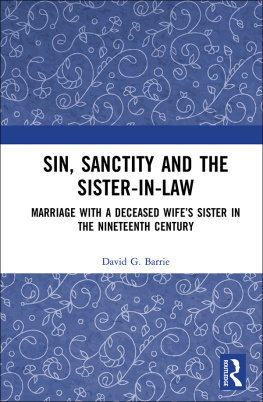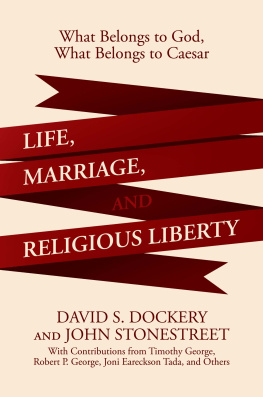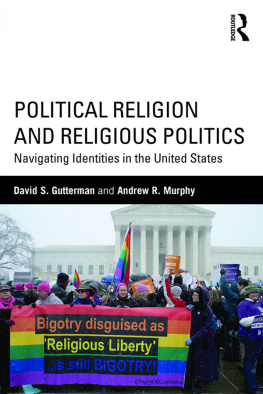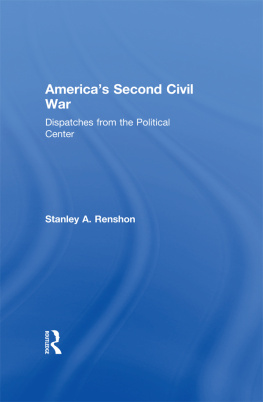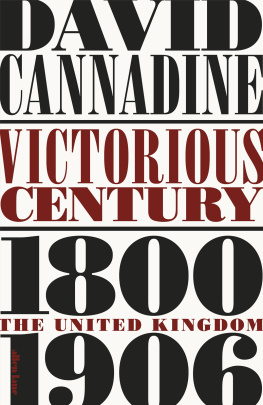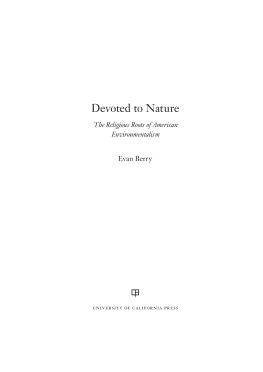Sin, Sanctity and the Sister-in-Law
This is the first book specifically devoted to exploring one of the longest-running controversies in nineteenth-century Britain the sixty-five-year campaign to legalise marriage between a man and his deceased wifes sister. The issue captured the political, religious and literary imagination of the United Kingdom. It provoked huge parliamentary and religious debate and aroused national, ecclesiastical and sexual passions. The campaign to legalise such unions, and the widespread opposition it provoked, spoke to issues not just of incest, sex and the family, but also to national identity and political and religious governance.
David G. Barrie is Associate Professor of History at The University of Western Australia. He is series editor of Palgrave Histories of Policing, Punishment and Justice. His recent publications include (with Susan Broomhall) Police Courts in Nineteenth-Century Scotland, in two volumes (Farnham, 2014).
First published 2005
by Routledge
2 Park Square, Milton Park, Abingdon, Oxon OX14 4RN
and by Routledge
711 Third Avenue, New York, NY 10017
Routledge is an imprint of the Taylor & Francis Group, an informa business
2018 David G. Barrie
The right of David G. Barrie to be identified as author of this work has been asserted by him in accordance with sections 77 and 78 of the Copyright, Designs and Patents Act 1988.
All rights reserved. No part of this book may be reprinted or reproduced or utilised in any form or by any electronic, mechanical or other means, now known or hereafter invented, including photocopying and recording, or in any information storage or retrieval system, without permission in writing from the publishers.
Trademark notice: Product or corporate names may be trademarks or registered trademarks, and are used only for identification and explanation without intent to infringe.
British Library Cataloguing-in-Publication Data
A catalogue record for this book is available from the British Library
Library of Congress Cataloguing-in-Publication Data
Names: Barrie, David G., author.
Title: Sin, sanctity and the sister-in-law: marriage with a
deceased wifes sister in the nineteenth century / by David G. Barrie.
Description: New York: Routledge, 2018. |
Includes bibliographical references and index. |
Identifiers: LCCN 2018007609 (print) | LCCN 2018012078 (ebook) |
ISBN 9781351247856 | ISBN 9780815370925
Subjects: LCSH: Marriage with deceased wifes sisterGreat
BritainHistory19th century. | Marriage with deceased wifes
sisterEnglandHistory19th century. | Marriage with deceased
wifes sisterScotlandHistory19th century. | Marriage with
deceased wifes sisterSocial aspectsGreat Britain.
Classification: LCC KD756 (ebook) | LCC KD756 .B377 2018 (print) |
DDC 346.4101/63dc23
LC record available at https://lccn.loc.gov/2018007609
ISBN: 978-0-8153-7092-5 (hbk)
ISBN: 978-1-351-24785-6 (ebk)
Typeset in Goudy
by codeMantra
To Jo and Hadley, with love, always
B.P.P. | British Parliamentary Papers |
G.C.A. | Glasgow City Archives |
H.C. Deb. | House of Commons Debates |
H.L.S. | House of Lords Sitting |
MDWS | Marriage with a Deceased Wifes Sister |
N.L.S. | National Library of Scotland |
N.C.A. | New College Archives (Edinburgh University) |
My first acknowledgement goes to the people who brought the subject of the book to my attention. Whilst reading judicial records in the National Library of Scotland I stumbled across a police court trial for breach of the peace in an Edinburgh Music Hall in 1850. The trial was far from typical. It was the longest of its kind in the Edinburgh police courts history and it received extensive media coverage not the usual short paragraph in the local press. Judicial proceedings did not involve the urban poor who were invariably the recipients of summary justice, but rather a young London lawyer, a respectable local merchant and Edinburghs civic, religious and legal elites. Why such well-heeled and educated gentlemen should have been involved in a public disturbance intrigued me. That the tumult was over a topic about which I had never heard whether a widower should be allowed to marry his deceased wifes sister was even more intriguing. After searching the librarys catalogue it became apparent that marriage with a deceased wifes sister had stimulated much passion, anger and discord. It was the inspiration for hundreds of published nineteenth-century tracts, endless political debate and several recent scholarly articles. Surprisingly, though, no historical monograph had charted its history. It was time, I thought, to rectify this and to reconstruct the narrative.
This was a strange decision for someone whose research background lies in policing, crime and justice rather than marriage and the family. At times, I was concerned that I had bitten off more than I could chew. That I chose to take on this project, and persevere with it, is testament to the work and kindness of others. I owe a great intellectual debt to the scholars who have pioneered research in this area. Their work introduced me to new genres, disciplinary approaches and theoretical traditions. It made me want to learn more. I solicited the advice of many people and I am extremely grateful to all who responded. Among those who have been especially helpful are Mary Jean Corbett, Charlotte Frew, Katie Barclay, Aileen Black, Rebecca Rey, Penny Fielding, Bob White, Elizabeth Ewan, Lisa OConnell, Raewyn Dalziel, Peter Bush, Brian Stanley, Esther Breitenbach, Kieran Dolan, Joan Richardson, Andrew Nash, Duc Dau, Jill Felicity Durey, Graham Tulloch, Liam McIlvanney, John Harrison, Gerard Carruthers, Ian Campbell, Ian Duncan, Andrew Lynch, Donna Maguire and Lesley Orr MacDonald.
Iain Hutchison responded to a last-minute call for archival assistance in Scotland which was desperately needed while I laboured on the other side of the world. Jo McEwan helped to locate some parliamentary records and, along with Andrew Broertjes, undertook some of my teaching duties whilst I worked on the project. Elizabeth Gralton and Sarah Cheeseman provided first-rate editorial assistance. The book would not have been possible but for the support they provided. Staff at the National Library of Scotland, the National Archives of Scotland, New College Archives (Edinburgh University), Edinburgh Central Library and The University of Western Australia Library were kind, courteous and efficient. I am very grateful to Rob Langham and Julie Fitzsimons at Routledge for believing in this book and for helping to see it through to publication. None of the above is, of course, in any way responsible for content or errors that might exist. A Discovery Grant from the Australian Research Council (DP130104804) facilitated research for the book.
I am particularly grateful to my fiance, Jo. It takes a special partner to be supportive of a project on marriage with a deceased wifes sister especially after I announced I was going to work on it one week after Jo accepted my marriage proposal! Thanks for being a wonderful partner and mother to our gorgeous daughter, Hadley, whose beautiful smile brightens our day every day. Both are a constant reminder of why the subject of the book mattered so much to so many people (Jo, you will know what I mean if and when you read on). Thanks also to our family in Australia and in Scotland. Their love and encouragement have always been a source of inspiration.

